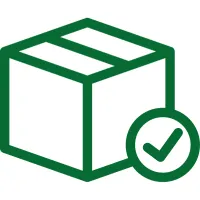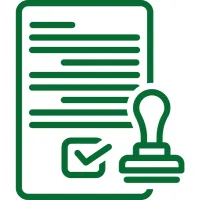Your One-Stop Shop for Truck Insurance
Discover your all-in-one solution for Truck Insurance in 9 states around USA.
If you are based in Florida, Texas, Alabama, New Mexico, Arizona, New York, New Jersey, Ohio or Missouri we are your best option.
We focus on customized coverage, safeguarding your commercial trucks and transport business.
We tailor protection to your unique requirements, with diverse insurance options and top-notch service, we're your trusted partner for your trucking insurance.
Our Agency
Our insurance agency specializes in commercial truck insurance and transportation insurance coverage. We propose protection for you and your commercial trucking and transportation requirements including auto liability, non-trucking liability, general liability, motor truck cargo, physical damage, and trailer interchange.
We do business with the customer in mind. At our independent agency, we have relations with several insurance companies, permitting you to get the right price with the right service. We help you find the correct coverage, with the best carriers. We will provide the best value for your needs.
Our Services
All The Services That Our
Company Provides




Why Choose Us
We Are Award
Winning Company
Team of Experienced Trucking Specialists
Fast and Reliable Service
Agency App with access to your policy’s information.
port
Client Center to make your own COIs at any time from any place.
Frequently Asked Question
What Is Trucking Liability Insurance?
A liability is something that you are responsible for. Therefore, a trucker’s liabilities might be their responsibility for operating safety and making sure they deliver their cargo on time. Should they fail in this endeavor, then they might owe multiple people money.
When losses arise as a result of a truck wreck or other hazard, then the trucking company might be at fault for the accident. Therefore, to compensate third parties that are affected by your mistakes, you should be able to rely on liability insurance. Proper liability coverage can significantly reduce your trucking company’s out of pocket burden following costly mistakes that are your responsibility to repay.
How Does Trucking Liability Insurance Work?
You will make a liability insurance claim when it is determined that a trucking-related accident is your fault. However, the policy you will use to make this claim can vary depending on the circumstances.
That’s why most truckers need several types of trucking insurance, including:
• Primary Trucking Liability Insurance: This coverage applies when you operate your truck, and it pays for third-party injuries or property damage arising from the trucker’s at-fault accidents.
• Trucking General Liability Insurance: This coverage applies to third-party bodily injuries or property damage that occur when you park your truck and are in the process of loading, unloading or performing other business with it.
• Environmental Liability Coverage: Truckers who carry hazardous materials will need this coverage to pay for the costs of cleaning up damage caused by spills resulting from wrecks.
• Motor Truck Cargo Insurance: This coverage insures the cargo within your truck. Therefore, should damage occur, then this coverage will pay the owner of the cargo for their losses.
Please note, there are times when you might not officially be on dispatch or on a delivery. Therefore, your liabilities will change. However, your insurance obligations won’t. Beyond primary trucking coverage, you will likely need a few additional types of operational coverage.
• Non-Trucking Liability Insurance: You can extend your liability coverage to times when you drive your truck for personal or other non-business purposes.
• Unladen Liability Insurance: This coverage can offer liability insurance when you complete a job and proceed to drive back from a dispatch either without a trailer (bobtailing) or with an empty trailer (deadheading). It will apply regardless of whether a trucker is on dispatch or not.
Is Trucking Liability Insurance Mandatory?
The interstate trucking industry is extremely tightly regulated. Therefore, most truckers must carry a minimum liability coverage of at least $750,000 as required by the Federal Motor Carrier Safety Administration (FMCSA).
Depending on your specific operations, you might face higher liability coverage requirements, and you should always carry more coverage than required by law. The more protection you have, the better your ability will be to recover from the costly ramifications of at-fault accidents.
What Is Cargo Insurance?
Incalculable amounts of freight and goods travel over America’s roadways each day. They are bound for businesses of every shape and size, or they represent the personal goods of countless American families. Your job as a trucker is to get your shipments between Point A and Point B without a problem.
However, wrecks, theft or other damaging hazards could strike at any time. When they do, someone else’s belongings could wind up damaged. Because those items were in your care, it might be your responsibility to pay for the losses.
Motor truck cargo insurance will guarantee that you can do so without the hassle and expense of paying out of your company’s pockets. Coverage is a stabilizing benefit that protects both trucking companies and their clients from costly losses.
What Does Cargo Insurance Cover?
Any cargo damage or loss might harm not only the trucking company, but also to the customer. Cargo insurance, also called charge coverage, will help you compensate the client for their losses. Usually, your plan will cover most shipments, from perishable goods to household goods, so long as you have designed your policy appropriately.
Most plans will pay following numerous hazards, including:
• Collisions
• Overturns
• Fires
• Severe Weather Damage
• Theft & Vandalism
• Riots/Civil Unrest
• Explosions
Besides the damaged cargo itself, your plan might also pay for:
• Sue and Labor Costs: If a problem occurs (or is at risk of occurring), you might have a duty to take all reasonable steps to continue to protect the cargo in your care. This coverage helps you pay the expenses to do so.
• Earned Freight Losses: You can use this benefit to reimburse the freight charges that the customer paid you to deliver the load.
• Legal Expenses: A liability lawsuit might arise over damaged cargo. Your insurance coverage can help you pay for your own defense costs and reimburse the claimant for theirs, if necessary.
Removal Costs: Should a wreck cause your cargo to spill into the roadway or local environment, this coverage can pay for the cleanup.
However, exclusions and limitations will mean that not all types of cargo will have coverage, nor will all perils, either. But People Trucking Insurance’s agents are knowledgeable in all types of cargo coverage. We can help you adapt your plan appropriately to ensure you receive the right benefits at the right time.
How Much Cargo Insurance Do I Need?
Most of the time, truckers must carry at least $100,000 in charge coverage. However, this coverage might not be enough for the full value of the cargo in your care. As a result, you might need to increase your coverage.
Additionally, clients should consider investing in freight insurance, which is coverage that they buy separately from the carrier’s coverage which also insures the value of their cargo. This is often much more targeted than the charge coverage your trucking company might have. However, it is not an excuse for you not to carry coverage.
Do I need workers compensation insurance?
Employers have a legal responsibility to their employees to make the workplace safe. However, accidents happen even when every reasonable safety measure has been taken.
To protect employers from lawsuits resulting from workplace accidents and to provide medical care and compensation for lost income to employees hurt in workplace accidents, in almost every state, businesses are required to buy workers compensation insurance. Workers compensation insurance covers workers injured on the job, whether they're hurt on the workplace premises or elsewhere, or in auto accidents while on business. It also covers work-related illnesses.
Workers compensation provides payments to injured workers, without regard to who was at fault in the accident, for time lost from work and for medical and rehabilitation services. It also provides death benefits to surviving spouses and dependents.
Each state has different laws governing the amount and duration of lost income benefits, the provision of medical and rehabilitation services and how the system is administered. For example, in most states there are regulations that cover whether the worker or employer can choose the doctor who treats the injuries and how disputes about benefits are resolved.
Workers compensation insurance must be bought as a separate policy. Although in-home business and business owners policies (BOPs) are sold as package policies, they don't include coverage for workers' injuries.
How Does Trucking Insurance Work?
Commercial trucking companies assume a high degree of liability for vehicle safety and the property left in their care. They do their best to ensure that they deliver their products to the correct places and without accidents along the way.
However, nothing is certain, and in the event of accidents, you’ll often face considerable recovery costs. Proper trucking insurance is a resource that will help you afford these expenses without sacrificing your critical company assets and facing insolvency. Your policy can provide extensive benefits for multiple loss scenarios and make your overall operations more secure.
What Kind Of Insurance Does A Trucking Company Need?
To design a proper trucking insurance policy, you will likely need several benefits. These include:
Physical Damage Insurance: This will pay for damage to your truck and trailer. If you do not own the trailer, then you will need non-owned trailer physical damage coverage.
Motor Truck Cargo Insurance: You generally have to carry this coverage when you haul cargo for clients. It will insure the items in case of losses.
Primary Trucking Liability Insurance: This coverage pays for third-party injuries or property damage arising from the trucker’s at-fault accidents while on dispatch.
Non-Trucking Liability Insurance: You can extend your liability coverage to times when you drive your coverage for personal or other non-business purposes.
Trucking General Liability Insurance: This coverage applies to third-party bodily injuries or property damage that occur when you park your truck and are in the process of loading, unloading or performing other business with it.
Workers Compensation Insurance: Truckers injured in accidents usually qualify for workers compensation, which will pay them a supplementary income as they recover from their injury.
Bobtail Liability Coverage: When driving a truck with an empty trailer or with not trailer attached, this coverage insures you for the costs of accidents.
Environmental Liability Coverage: Truckers who carry hazardous materials will need this coverage to pay for the costs of cleaning up damage caused by spills resulting from wrecks.
By law, most truckers and trucking companies must carry certain amounts of coverage.
• The Federal Motor Carrier Safety Administration (FMCSA) requires at least $750,000 in primary liability coverage.
• Most freight shippers and brokers also require drivers to have liability insurance, too. Their requirements might vary from the FMCSA requirement.
• Most companies must have workers compensation for all full and part-time employees.
• If you have financed your truck, then you will likely have to carry physical damage insurance.
Other coverage requirements might also apply, so don't hesitate to discuss your operations with our agents to learn more about any coverage requirements.
How Much Does It Cost To Insure An 18-Wheeler?
All trucking insurance policies come with different costs, and our agents can help you comprehensively review your needs and risks to offer you a competitively priced quote on your policy. We can also help you optimize your benefits so that you always receive the best value for the coverage you need.
Looking for Permits?
We offer full-service permit assistance for all Florida motor truck operators.
Our Feedback
What Our Clients Says
Our Location
Fort Myers, Florida
Miami Lakes, Florida
Office: 12734 Kenwood Ln, Unit 84, Fort Myers, FL 33916
Office: 5793 NW 151st St, Unit 5793B, Miami Lakes, FL 33913
Fort Myers: 239-800-9774
Miami Lakes: 954-666-0377
© Copyright 2023. All rights reserved.